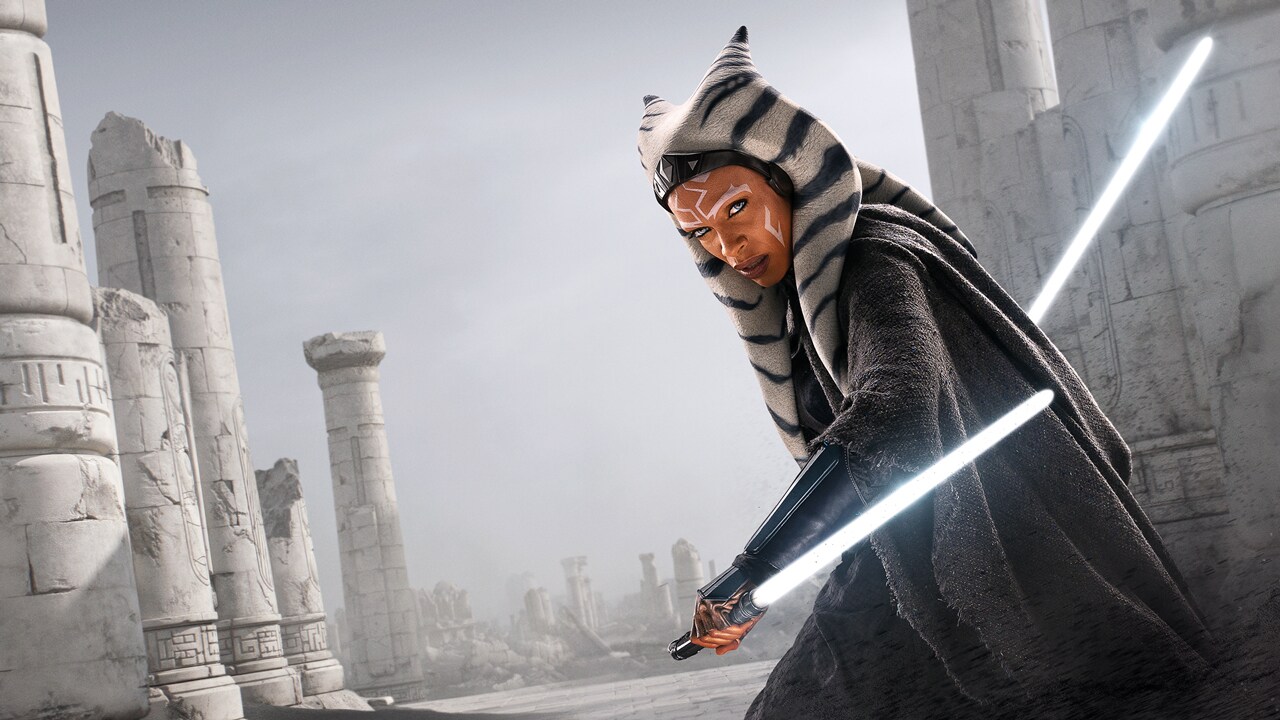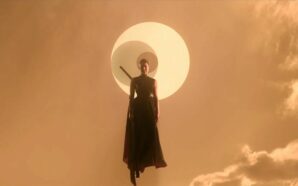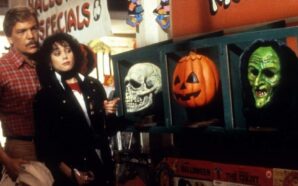Ahsoka is the live action continuation of eleven seasons of animated Star Wars, with everything happening being informed by not just Rebels but The Clone Wars too. Yet watching the finale of this eight-episode first season, which I very much enjoyed, it wasn’t just the animated side of the franchise I felt echoes of. I presume much to the chagrin of some, what I felt most keenly was that most controversial instalment of Star Wars: The Last Jedi.
The Ahsoka we meet at the start of this series is similar to the Luke of The Last Jedi, albeit a less drastic version. Both are grumpier, holding a much less positive attitude, and struggling to deal with the weight of their Jedi legacy and their failure with a young padawan. Both Jedi are brought out of this existential funk by young female padawans and after being taught a valuable final lesson from their ghostly former master. Once their spirits are revived, both Ahsoka and Luke take a last stand while their allies flee, with Luke on Crait and Ahsoka holding off the undead and Morgan Elsbeth on Peridea. The key difference is while Luke controversially perishes, Ahsoka lives (?/!) due to Sabine coming back for her, highlighting the thematic throughline of the trust necessary in the master/apprentice relationship in the show.
The finale reveals (perhaps a little too late and without the exploration it deserves) that a large part of the frostiness between master and apprentice was that Ahsoka was worried Sabine would give in to the dark side and use her Jedi training in service of revenge for the death of her family. She didn’t stand by her because of fear, which she spends the back half of the season, after her epiphany with Anakin, trying to rectify. This fear, again, feels similar to Luke fearing the darkness in Ben and giving in to it. The backstory with Ben Solo in The Last Jedi is a hard pill to swallow and, even though it has its own issues, this slight variation in Ahsoka feels like the more developed and fleshed-out version of the same inner conflict.
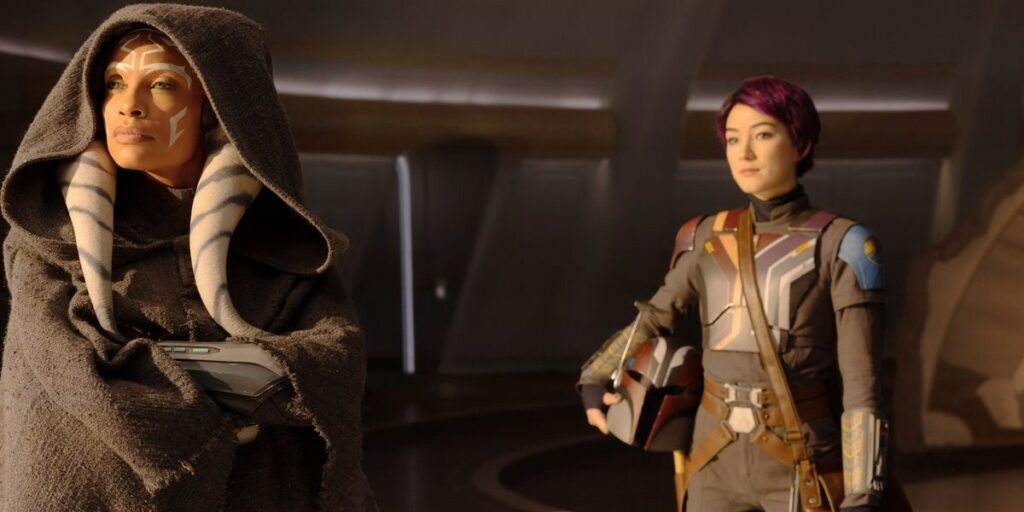
What went a long way to making tired tropes somewhat refreshing was Sabine’s decision to join the baddies at the show’s midway point. A “join me” moment in Star Wars where the character does actually join! This also felt like a twist on Rey’s decision not to do so in The Last Jedi. Again, the characters of Sabine and Rey are comparable at the end when they both have to perform a great force act, previously impossible for them, to help a friend escape; Sabine with Ezra’s assisted force jump and Rey’s purposefully simplistic lifting of rocks.
Away from character beats, there were also scenes and circumstances in the Ahsoka finale which reminded me of the middle sequel. Our heroes on howlers running towards the tower as Thrawn rains down fire on them was shot and presented similarly to the ski speeder sequence in the film. The fight with the death troopers – their name now literalised – is like the praetorian guard fight, complete with a sudden on/off lightsaber stab to the head. The ending also plays as an interesting inverse of The Last Jedi, with the villains finally managing to flee from their pursuers. It’s also worth noting that the season ends with a delicious inverse of the ending of Rebels, which set up this series, with Thrawn and Ezra being whizzed back to the known galaxy while Ahsoka and Sabine are trapped on Peridea.
As with the film, the season ends, at least galactically-speaking, with a loss for the heroes, the resurgent Empire triumphant, just as the First Order was. But there are more personal emotional victories for Ahsoka, Sabine, and Ezra, which I like. On first viewing I was unsure of the unresolved nature of the finale but I’ve come to like how it concludes. We should be used to that by now with Filoni’s work. Just look at how long we had to wait to find out what happened to Ezra and Thrawn, or Ahsoka’s fate (multiple times). He’s a tease but thankfully so far has always delivered. Retroactively it is disappointing we didn’t get all of Baylan’s story this season so Ray Stevenson could portray the character for his entire arc. It was a wonderful performance I’m sad we’ll not see more of. I’m okay with recasting though, the story can’t end here after that tease of the Mortis gods, and I know Liev Schreiber is a popular casting among fans.
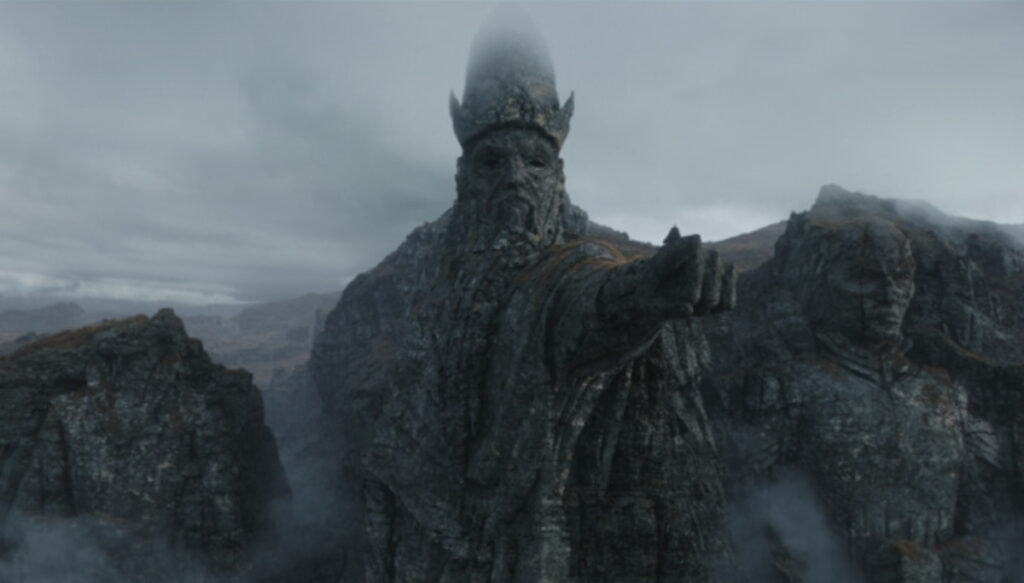
At points, Ahsoka felt like each and every episode of Star Wars, every aspect of the franchise highlighted in one way or another, especially the fantastical elements. As much as I love Andor and consider it the best live action Star Wars series, to have a show in Ahsoka that is this unabashedly Star Wars-y is a joy. And, yes, a sizable part of that influence and feel from the franchise at large in this series is The Last Jedi. A remix, a response, an homage, a condemnation, however you want to phrase it or, as many of the Internet do, warp its intent to fit their own opinions. I’m not interested in pitting The Last Jedi or Ahsoka against one another. Shockingly, I can like more than one Star War at a time.




